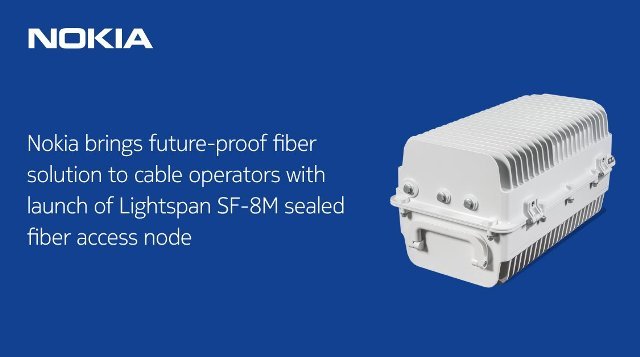Nokia, the leading telecom equipment maker, has declared its strategic shift towards 100 percent recyclable packaging for its entire Lightspan portfolio of broadband access nodes by the end of 2023.

This monumental leap follows Nokia’s earlier commitment to integrating more sustainable and eco-friendly packaging, which initially commenced with its broadband customer premises equipment in 2022.
This transformation in packaging marks the elimination of non-biodegradable elements such as foam, plastic, bleaching agents, toxic materials, and chemical treatments. Nokia’s innovative solution replaces conventional protective plastic covers with a biodegradable alternative.
Additionally, the buffer material, crucial for shielding products from potential damage during transit, has been revolutionized with fully recyclable cardboard components, compliant with the Forest Stewardship Council’s regulations. Notably, the packaging has been meticulously designed for reusability in return shipments.
Nokia’s recent deployment of eco-friendly packaging was instrumental in delivering a new generation of high-speed G.fast access nodes to Deutsche Telekom. These advanced nodes exhibit a more compact and lighter design, leading to a staggering 60 percent reduction in packaging size and an impressive 44 percent decrease in overall weight.
This efficiency enhancement enables Nokia to ship a higher volume of products per pallet, consequently potentially slashing CO2 emissions from transportation by up to 60 percent.
Arash Ashouriha, Senior Vice President of Group Technology Innovation at Deutsche Telekom, emphasized the company’s resolute commitment to circularity goals for 2030. Highlighting their meticulous approach to the entire product lifecycle and supply chain, Ashouriha underscored the elimination of single-use plastics in their ‘T’-branded devices and the pivotal role of collaborations with technology partners like Nokia in innovating sustainable packaging solutions.
Geert Heyninck, Head of Broadband Networks for Fixed at Nokia, reiterated the pivotal role of eco-friendly product packaging in advancing their climate and environmental objectives.
By employing 100 percent recyclable materials, Nokia aims to significantly curb waste production and actively contribute to a circular economy. Furthermore, the compact nature of the packaging facilitates more efficient transportation, aligning with the company’s commitment to reducing CO2 emissions by up to 60 percent.
In 2022, Nokia’s pioneering Sustainable Packaging System garnered significant acclaim, receiving six Red Dot Awards, including the prestigious ‘Best of the Best’ distinction, and eight iF Awards.
This system, characterized by its utilization of organic, biodegradable materials and its capacity to reduce both transportation costs and waste disposal, exemplifies Nokia’s dedication to sustainable innovation.
Moreover, Nokia has firmly committed to Science Based Targets, endeavoring to slash greenhouse gas emissions by 50 percent by 2030. This ambitious goal aligns with the imperative of limiting global warming to 1.5°C by 2030 and achieving net-zero emissions by 2050, firmly establishing Nokia’s position as a frontrunner in environmental responsibility and sustainable practices.
